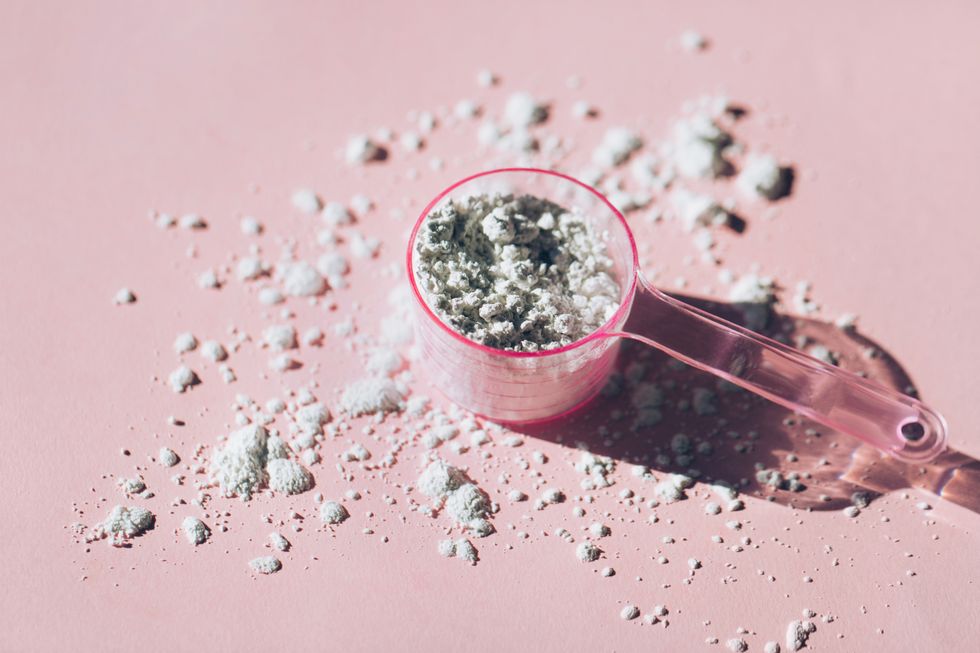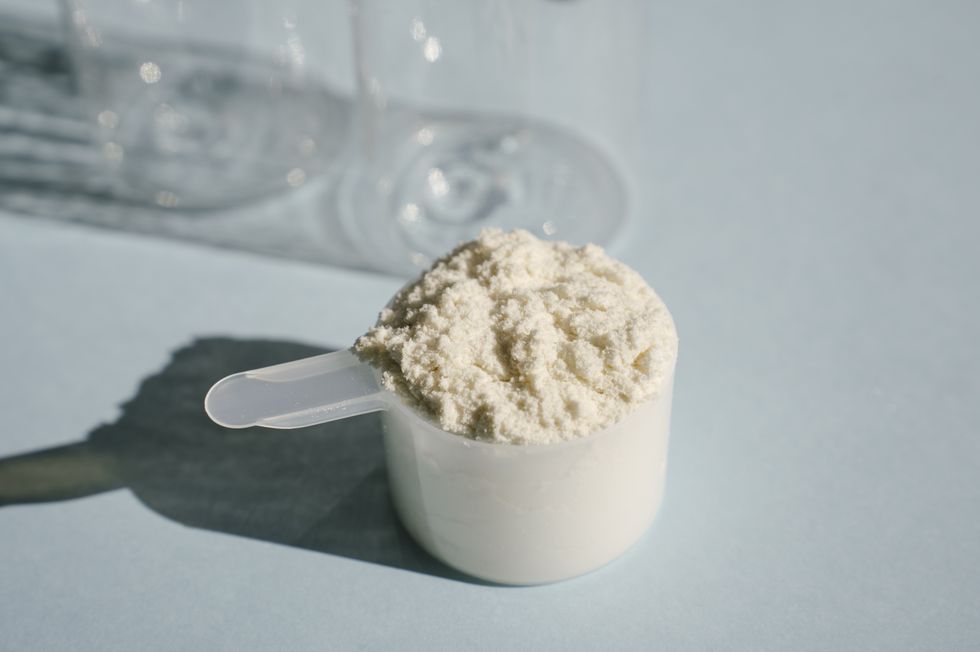Pupinder S Ghatora discusses the role of collagen in the body
GB News
The key to optimising collagen intake may not be quantity but rather consistent, repeatable dosing
Don't Miss
Most Read
Trending on GB News
Collagen serves as the body's essential scaffolding, acting as a complex protein meshwork that provides structural support throughout our systems.
However, from age 25 our bodies begin to lose their efficiency at producing this vital protein, with levels declining at approximately 1.5 per cent per year.
This decline doesn't mean the body stops making collagen entirely. Rather, it becomes less efficient at joining the amino acid building blocks that form the protein's structure.
For women, this natural reduction can become more pronounced during menopause, when losses may reach 20-30 per cent due to changes in oestrogen and progesterone levels.

Repeatable and consistent dosing promotes better collagen absorption
GETTY
In contrast, men experience a steadier decline, though testosterone reduction in their 50s can trigger additional collagen loss.
This ongoing process affects everything from skin and hair to bones, teeth and eyes, as collagen is present throughout the body's tissues, explained pharmacist and co-founder of Ingenious, Dr Pupinder S Ghatora.
The common assumption that more collagen means better results may be misguided.
“There is a ‘more is better’ misconception, but your body is only going to absorb a certain amount,” Pupinder told GB News. "Despite what you may see on the internet and what companies claim, no one really knows what the amount is.
“You’ve got companies out there using 10 grams, but that doesn’t necessarily mean you’re going to absorb that amount if you’re not protecting those peptides.
“I don’t think it’s a case of more is better in this case, I think the key is consistent, repeatable dosing.”
While some products contain up to 10 grams of collagen peptides, the body can only absorb a limited amount through the digestive system, Pupinder explained.
Without protection, collagen peptides are unlikely to withstand stomach acid, meaning much of a larger dose may be broken down before reaching the bloodstream.
This challenges the "more is better" approach seen with many liquid and powder supplements, a strategy Pupinder compares to "throwing mud at a wall" - some may stick, but the process is largely inefficient.
Which is most effective: Powdered or capsule supplements?
The effectiveness of collagen absorption from supplements depends partly on their delivery method, with Pupinder arguing that protected capsules offer potential advantages over traditional formats.
Standard liquid and powder supplements, on the other hand, can face challenges in the digestive system, due to the presence of stomach acids and enzymes like pepsin.
LATEST DEVELOPMENTS

Protected capsules may offer potential advantages over powdered formats
GETTY
When contained in a capsule that remains intact in the stomach's acidic environment, however, the collagen is more likely to reach the small intestine.
In other words, this delivery system protects the collagen peptides until they reach an area where absorption is more likely to occur.
“The capsule travels through the stomach, with the stomach transit time being between half an hour and two hours for food capsule,” Pupinder explained. “When it hits the small intestine, there’s less acid there. The capsule then degrades slowly and releases all of the active ingredients.”
This isn't to say that unprotected supplements don't offer any absorption, but the process will inevitably be less controlled and predictable.
At the end of the day, the goal is to maintain intact collagen peptides long enough to trigger the body's fibroblast cells responsible for increasing natural collagen production, according to Pupinder.








